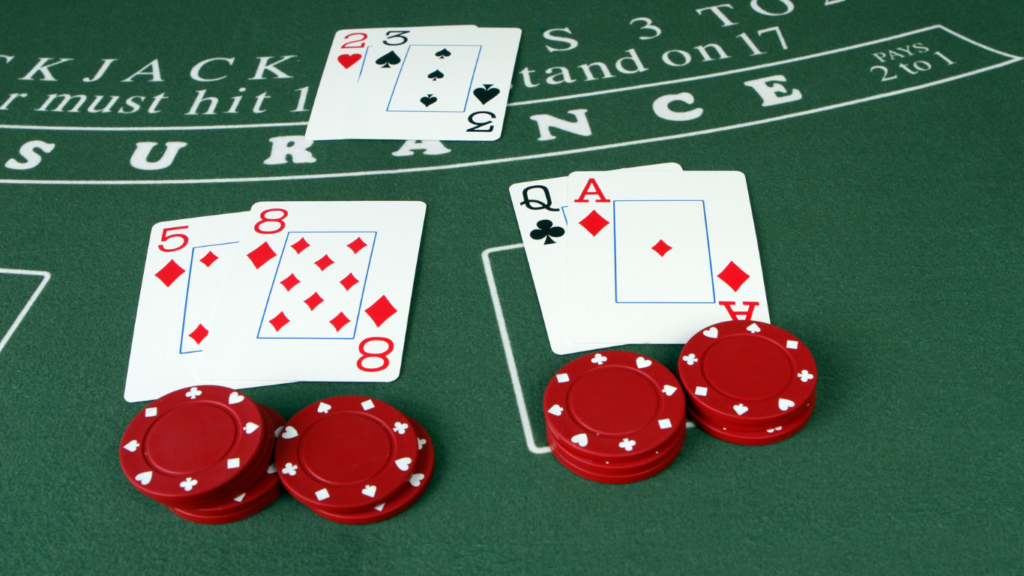Understanding Luck Vs. Skill in Gambling
Luck dominates games where outcomes are random, like slot machines or roulette. In these, players rely entirely on chance, as no decision-making influences the result. The randomness in these games ensures the house edge remains consistent, often leaving little room for improvement.
Skill affects outcomes in games where strategy and knowledge play a crucial role. Popular examples include poker, blackjack, and sports betting. In these games, experienced players analyze situations, make calculated decisions, and adjust their strategies to outperform others or maximize their odds.
Balancing luck and skill requires recognizing each game’s nature. Identifying where skill has the most impact helps prioritize learning strategies or focusing efforts. In luck-based games, managing emotions and bankroll becomes essential. For skill-based games, practice and studying statistics or strategies offer the most value.
The Role of Luck in Gambling
Luck serves as a defining element in gambling, influencing outcomes in unpredictable ways. In many games, luck dictates results, leaving players with little to no control over the final outcome.
Randomness and Probability
Randomness ensures that each gambling outcome is independent of previous ones. For example, in roulette, the ball’s landing spot isn’t influenced by prior spins. Probability calculates the likelihood of specific results and helps players understand their chances. For instance, in a standard six-sided die roll, the chance of any number appearing is 1 in 6.
While randomness ensures fairness in the short term, probability informs long-term patterns. If 1,000 coin flips occur, outcomes may trend towards a near-equal number of heads and tails, even if fluctuations arise in fewer flips.
Games Based Purely on Chance
Some games depend completely on chance, offering no advantage from strategy or expertise. Slot machines generate results through random number generators (RNGs), creating unbiased and unpredictable outcomes on every spin. Similarly, roulette outcomes hinge entirely on the ball’s physics and the wheel’s randomness.
In these games, players can’t influence results through skill. Instead, success relies on luck, making consistent success nearly impossible. This chance-based nature requires players to manage expectations while focusing on bankroll management to prolong gameplay.
The Role of Skill in Gambling

Skill plays a critical role in shaping outcomes for certain gambling activities. While luck influences any game, skill-based gambling highlights the player’s ability to apply knowledge, strategies, and decision-making to gain an edge.
Strategy and Decision-Making
- Strategic thinking helps players assess risks and maximize opportunities.
- Effective strategies consider probabilities, game rules, and opponents’ tendencies.
- In poker, for example, studying opponents’ behaviors can inform betting patterns.
- Players who adjust decisions based on changing circumstances often perform better.
- Decision-making is equally important. It involves knowing when to stay in the game and when to quit. In blackjack, choosing whether to hit, stand, or surrender depends on one’s hand and the dealer’s visible card.
- Success requires balancing mathematical probabilities with situational judgment.
Examples of Skill-Based Games
Skill-based games test a player’s expertise rather than relying purely on chance.
- Poker: Players use tactics like bluffing, hand reading, and chip management to outplay opponents.
- Blackjack: The player’s decisions directly influence outcomes, especially when applying card counting or basic strategy.
- Sports Betting: Understanding team statistics, player performance, and game dynamics improves the chances of predicting results.
Each of these games rewards preparation, practice, and sharp decision-making, allowing skilled players to improve their odds significantly.
Tips to Improve Your Odds
Improving gambling odds requires a combination of preparation, discipline, and knowledge. While luck plays a role, adopting these strategies can enhance decision-making and outcomes.
Managing Your Bankroll
I track my spending to avoid exceeding limits. Setting a budget for gambling ensures that I only use the funds I can afford to lose. I also break my budget into smaller session amounts, minimizing risks of substantial losses in a single gaming period. By sticking to predetermined limits, I maintain control over my finances.
To extend gameplay, I practice disciplined bet sizing. For example, I bet 1-2% of my total bankroll per game in poker or similar games, reducing the chance of depleting my resources quickly.
Learning the Rules and Strategies
I study the rules of each game I plan to play. Thorough understanding prevents costly mistakes and ensures that I can make informed decisions. For skill-based games like blackjack and poker, I rely on proven strategies. For instance, I use basic strategy charts in blackjack to improve my odds against the house.
When engaging in sports betting, I research team or player statistics, recent performances, and injury reports to make data-driven bets. Gathering this information allows me to approach gambling situations with an edge over less-prepared competitors.
Practicing Critical Thinking
I evaluate risks and rewards before making decisions. For example, in poker, I read opponents by analyzing their betting patterns and body language, which helps me predict their next moves.
In blackjack or other strategy-driven games, I use critical thinking to evaluate probabilities based on the cards in play. By processing these variables, I maximize my chances of making advantageous decisions during gameplay. Combining analysis and situational awareness keeps me adaptable and focused.



 Sarah Guerra – Responsible Gambling Advocate
Sarah Guerra is a leading voice in responsible gambling, advocating for safer and more ethical gaming practices as part of her role at Gamble Wise Roll. With a background in psychology and gambling regulation, she is committed to raising awareness about the importance of harm reduction strategies, self-exclusion tools, and mental well-being in gaming. Through her articles and research, Sarah educates players about setting limits, recognizing signs of problematic gambling, and making informed choices when engaging with betting platforms. She also collaborates with industry stakeholders to encourage responsible gaming policies and initiatives. Her work ensures that Gamble Wise Roll remains a champion of balanced and mindful gambling experiences, emphasizing enjoyment without risk.
Sarah Guerra – Responsible Gambling Advocate
Sarah Guerra is a leading voice in responsible gambling, advocating for safer and more ethical gaming practices as part of her role at Gamble Wise Roll. With a background in psychology and gambling regulation, she is committed to raising awareness about the importance of harm reduction strategies, self-exclusion tools, and mental well-being in gaming. Through her articles and research, Sarah educates players about setting limits, recognizing signs of problematic gambling, and making informed choices when engaging with betting platforms. She also collaborates with industry stakeholders to encourage responsible gaming policies and initiatives. Her work ensures that Gamble Wise Roll remains a champion of balanced and mindful gambling experiences, emphasizing enjoyment without risk.
